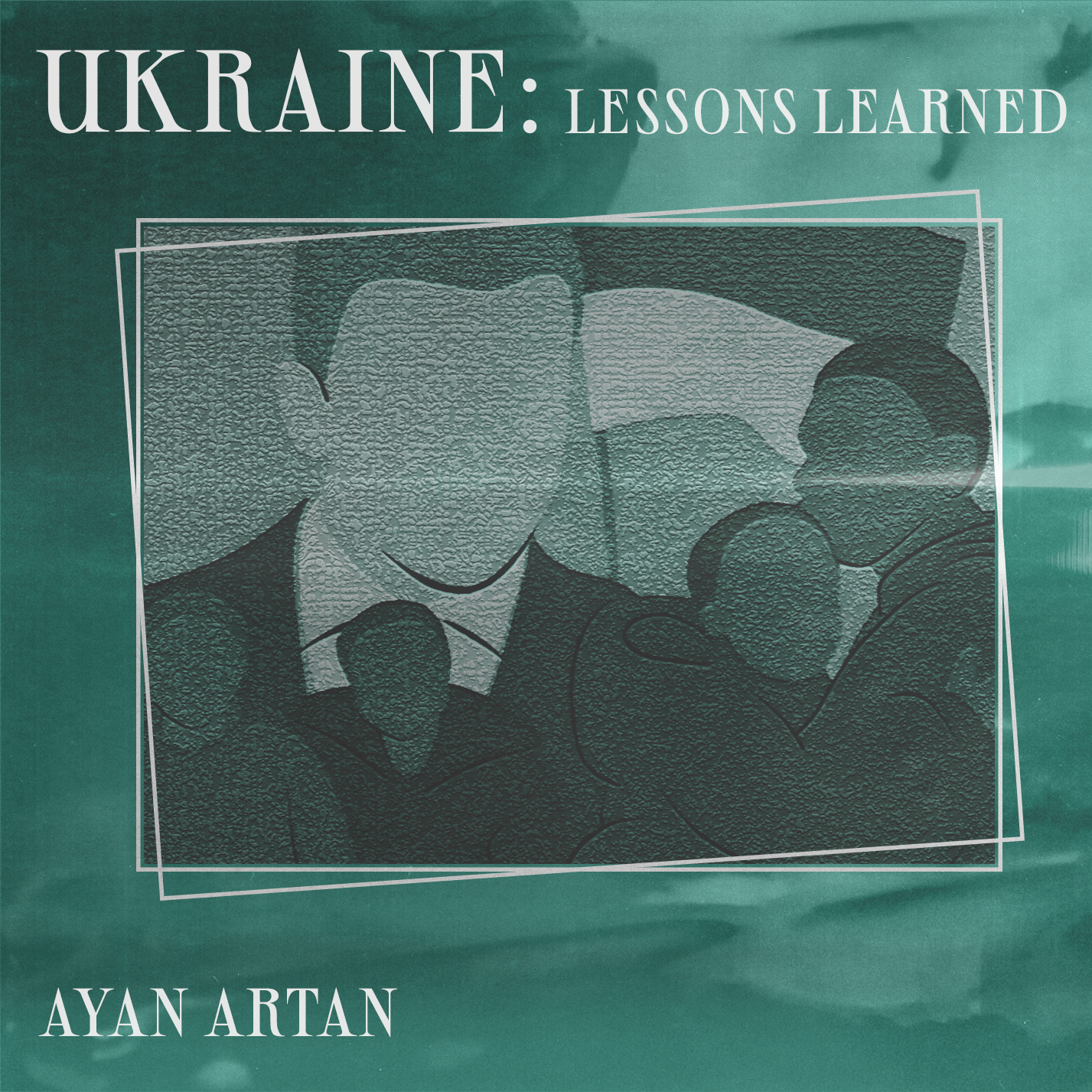Ukraine: Lessons Learned
Culture writer Ayan shares her thoughts on the hypocrisy of Western solidarity...
Vladimir Putin’s war in Ukraine has brought the world to a standstill. We woke up on the morning of the 24th filled with dread as it was confirmed that after months of denial and faux outrage, Russia had in fact launched a comprehensive invasion of Ukraine. The weeks leading up to the invasion had been filled with assertions from both sides of the conflict, with endless phone calls and press conferences held in attempts to negotiate away the rising Russian aggression in the region, with little success. It felt then, as we watched the videos of Ukrainians squashed sardine-like into underground bunkers on that bleak Thursday, that for the first time in decades, an inevitable war had arrived in 21st century Europe.
The world’s response has been a resolute one of swift condemnation; leaders spanning all seven continents issued statements of not only solidarity with the Ukrainian people, but with promises of sanctions and interventions to stop the “bloodshed and destruction” that Putin had decided to unleash with dictatorial ease on innocents.
International organisations like Amnesty International stated the Russian invasion was likely to “lead to the most horrific consequences for human lives and human rights” in the region, further reiterating the need for allyship to help avail Ukraine of the weight of this war. We cannot turn on a TV or scroll through social media without seeing the sheer scale of damage that war leaves in its wake; women clutch ashen-faced children lugging their possessions in old rucksacks, buildings lie in ruin, nothing more than rubble. The message is clear when it comes to Ukraine; this egregious violation of human rights is worthy of our outrage, the Ukrainian people worthy of our sympathy, of our prayers. And they are; to watch the place that raised you look like an excerpt from a dystopian novel is amongst the most traumatising things that could happen to you. It is a specific agony that only children of war can truly grasp; a pain shared by entire generations of Syrians, Somali’s, Palestinians, Libyans, Afghans and Iraqi’s.
“… the whiter the victim, the more natural it seems to display sympathy, to
exercise compassion”
The only difference between those people and the Ukrainian public lies in their status as Europeans; the whiter the victim, the more natural it seems to display sympathy, to exercise compassion. As a statement, it is one that will make for uncomfortable reading, perhaps for some indignation. We and our government are empathetic with anyone who has lost their home, you may respond.
I ask you to remember a time when our foreign secretary encouraged Britons to fight if they “want to support [the] struggle” in regards to Palestine, or Afghanistan. For Somalia or Iraq. And yet for Ukraine, Liz Truss willingly contradicts the advice given by her own ministry which states that anyone joining foreign war is to face the removal of their citizenship. And that exceptionalism extends beyond even our foreign office. The world’s media, previously encoded in practices of supposed “impartiality” when it came to conflicts in Eastern countries, have been working overtime to represent the war in Ukraine without any conflict in messaging: it is wrong for innocent civilians to be terrorised and driven from their homes. There is no major broadcaster allowing for debate on whether the Ukrainians are to blame, no pundits measuring whether Russia’s aggression is acceptable.
The only difference between those people and the Ukrainian public lies in their status as Europeans; the whiter the victim, the more natural it seems to display sympathy, to exercise compassion. As a statement, it is one that will make for uncomfortable reading, perhaps for some indignation. We and our government are empathetic with anyone who has lost their home, you may respond.
You would have thought that it goes without saying that war is an atrocious reality to witness, no matter which region of the world it breaks out in. But that is too much to ask of western governments. The idea of Boris Johnson or Emmanuel Macron encouraging immigration from any of the other nations I have mentioned is frankly a laughable one. We know what the British government proposes to do with those fleeing for their lives from beyond Europe. It is to leave them stranded in the cold water, clinging to their dinghies and children until France or the elements claim them. And if they do make it beyond the water, then it is to question whether or not these people have survived enough trauma to even be classified as refugees. I doubt those coming over from Ukraine will be met with the same suspicion.
When you collate all the evidence of colonialized hypocrisy that lines our foreign policy, the message is clear. Let your compassion be dependent on the race and religion of those who seek you out for help.
“Let your compassion be dependent on the race and religion of those who seek you out for help.”
Luckily for us, our people prove to be far more decent than our governments ever have.
credits
words — ayan artan
design — sâde popoola




